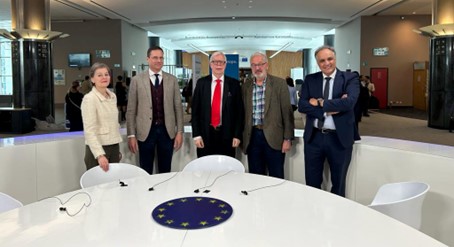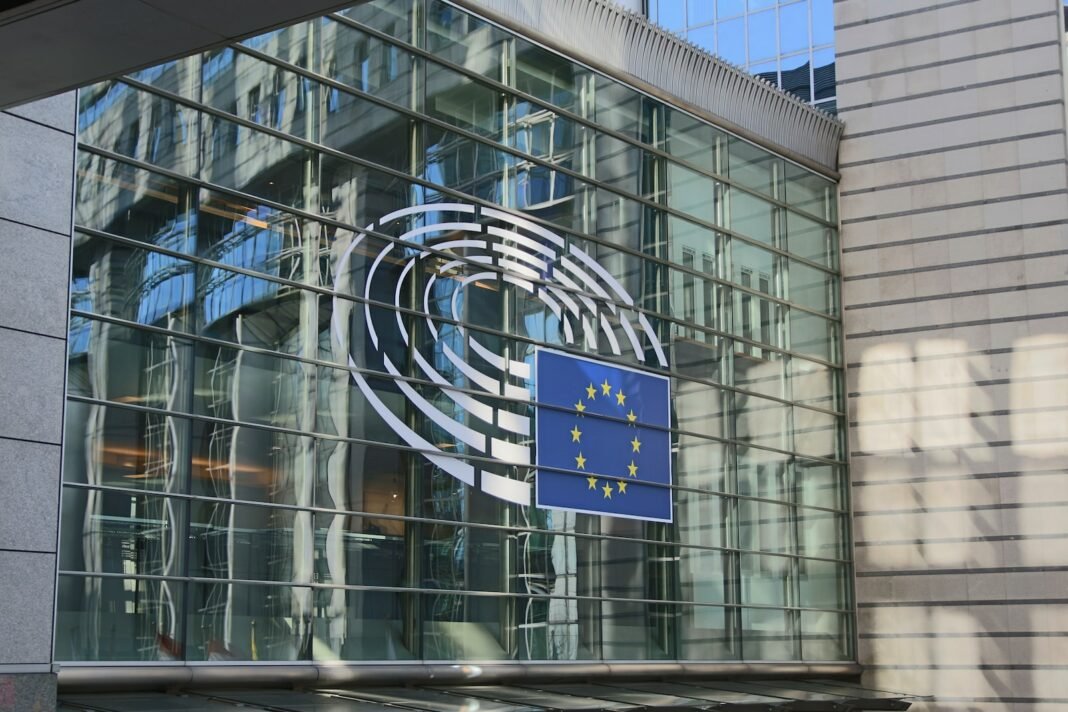As reported in The European Times today, Sudan presents an opportunity for the Muslim Brotherhood to expand its influence. The sanctions imposed on Sudan by Europe do not provide solutions to restrain the Brotherhood (Al-Kizan), whose activities have taken on military dimensions by recruiting members to defend the army. The Brotherhood is taking advantage of the turbulent security situation to expand its influence, and possibly turn Sudan into an incubator for the group after it suffered political and widespread losses in other Arab countries.
The European Union’s threat to impose sanctions on the main parties in Sudan to stop the war was a sign it may abandon its passive stance on the crisis. The EU has largely remained a spectator, except for occasional statements that do not suggest it is serious about ending the conflict. This confirms the EU is eager to end a war that could potentially threaten Europe.
Europe’s cry to establish a sanctions framework by September implies great concern about the ongoing conflict between the army and the Rapid Support Forces. However, it lacks practical moves to substantially participate in reaching a lasting ceasefire and seeking an armistice. The EU should have put forward an initiative or adopted a comprehensive vision for a solution.

Everyone has been content with resounding slogans and watching from the sidelines, as if the war’s repercussions would be limited to increased illegal immigration and humanitarian deterioration. It would not extend to directly threatening European interests if extremists managed to seize control in Sudan or drag it into a bitter civil war.
Chaos arouses the appetite of Islamic forces in Sudan. Recent information confirms the participation of extremist groups in the war under the guise of the dissolved National Congress Party and the Islamic Movement in Sudan. This means the matter has become a threat to neighboring countries and parties with interests in Sudan or nearby regions. It also expands the belt of militants, as their presence in West and East Africa puts Sudan between two pincers that will not be easy to contain later. The scope of humanitarian, economic, and security crises is expanding.
This result will prompt the EU to take action because it will lead to more losses for key Western countries, especially France, whose interests are already exposed to great dangers in Mali, Niger and the entire West African coast. If Sudan is added, a vast area will become significant centers sheltering extremists and terrorist hotspots targeting the West in general.
The United States has waded into the crisis through joint mediation with Saudi Arabia. The Jeddah negotiations are almost frozen and need assistance to achieve a breakthrough. Many African countries have tried, individually and collectively, to present political approaches that have yet to succeed. Meanwhile, the EU focuses on the symptoms of the crisis without addressing its core details. However, its repercussions on the EU will not be limited to increased asylum and displacement.
European countries chose the traditional humanitarian dimension of the crisis, trying to give it dramatic features by frequently discussing killings, bombings, looting, rape and shedding light on some tragedies that elicit sympathy.
Stopping the war requires carefully examining its fundamental causes and what it could lead to in the future. In both cases, evidence points to the remnants of Bashir’s regime infiltrating the Sudanese military establishment. They want to use it to return to power and defeat every attempt at a democratic transition and civilian rule, which is the supposed goal the EU claims to seek.
If the EU comes to understand the negative aspects of the Sudanese context later, any promises of economic sanctions or political appeals will become meaningless. The crisis has structural joints that must be dealt with comprehensively. With appreciation for their importance, the initiatives and sponsoring countries have yet to decipher the Sudanese crisis so far.
It will not help the EU to distance itself from engaging in an intense open crisis under the pretext it is a war that burns anyone who approaches it. Limiting involvement to the humanitarian aspect and deferring to Western organizations’ visions while neglecting political and security elements is essential.
European actions must reflect some of the political and security considerations in the moves taken by the EU or its member states. The stated willingness to impose sanctions appears to overlook the crisis’s essence or shirk responsibility before Western publics. Everyone knows the limited impact of sanctions on people. Sudan has tremendous accumulated experience enduring US sanctions for nearly three decades.
The European Union’s distancing from direct engagement with the crisis and adopting practical steps favors the Kizan (the Sudanese Brotherhood). This recalls past doubts about their sponsorship by some Western countries. If these doubts still apply today, European countries may find themselves facing a dangerous belt of crises.
Kizan today has an overwhelming desire not to defeat the army and confront the Rapid Support Forces, given the RSF commander is their number one enemy in Sudan. The oppressive military hand is blocking their path to return to power. In addition, the Kizan’s activities have taken on military dimensions after recruiting many extremist elements to defend the army. Western countries cannot pursue such terrorist organizations openly proclaiming regional expansionist projects and targeting Western interests. The fear Sudan could become a solid incubator for them will not be resolved by hints or the EU’s threats to deal with the complex reality in Sudan.


